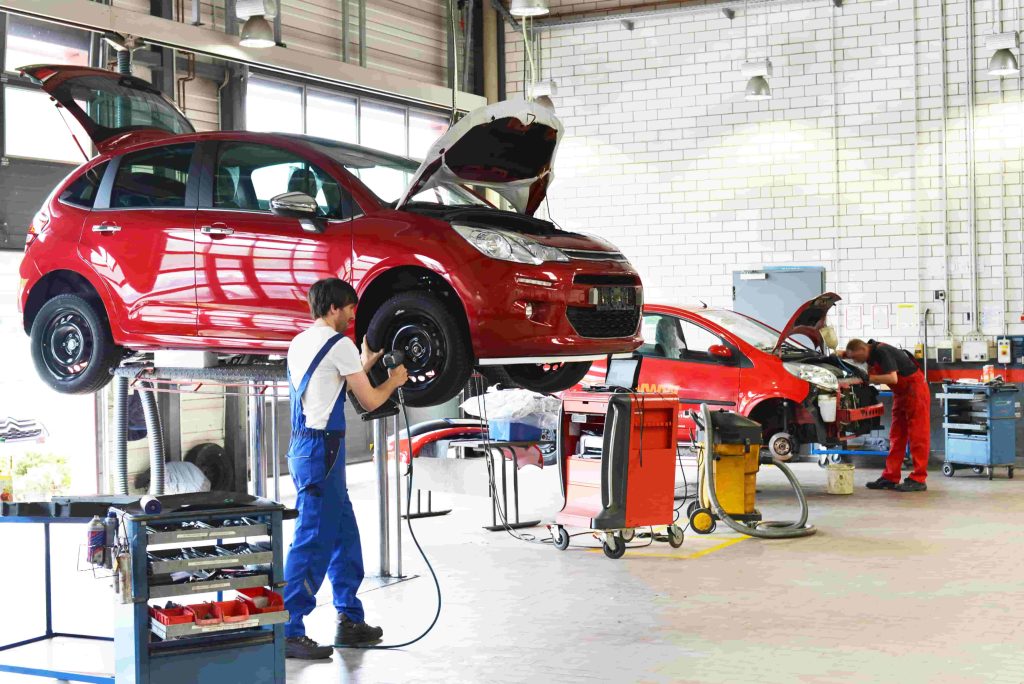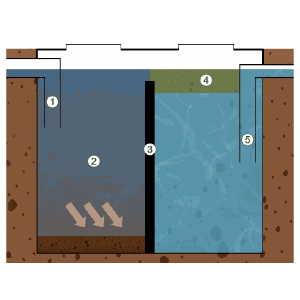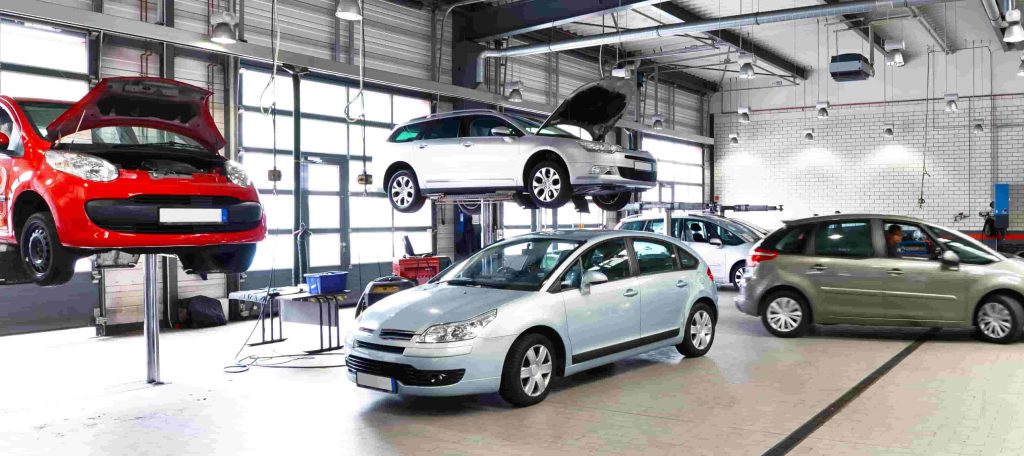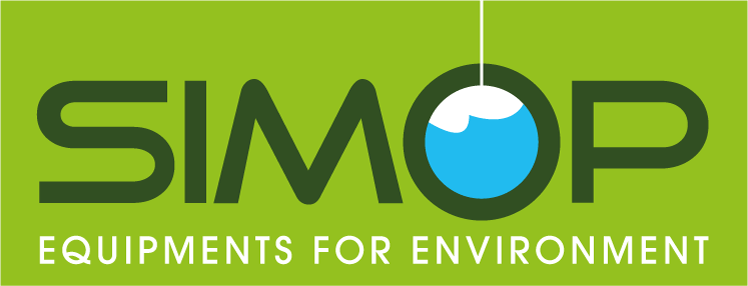When opening an automobile garage, it is essential to comply with certain legal and environmental obligations. These include the installation of hydrocarbon separators and level alarms.
What is an hydrocarbon separator?
An hydrocarbon separator is a device designed to separate hydrocarbons (such as oils and fuels) from water. These hydrocarbons can come from a variety of sources in an automobile repair garage, including car washes, oil leaks and accidental spills.


Why is it mandatory in a car garage?
Oil separators are essential to prevent water pollution. Car garages generate wastewater potentially laden with hydrocarbons, which, if discharged directly into the sewage system or into the environment, can cause considerable environmental damage. In France, regulations require car garages to treat their wastewater to remove hydrocarbons before discharge.

Level alarms: an indispensable complement
A level alarm is a device that detects and signals liquid levels in a tank or hydrocarbon separator. It warns garage personnel when a critical level has been reached, whether for hydrocarbon filling or water level.
Installing a level alarm in an automotive garage is crucial for several reasons:
- Overflow prevention: It helps prevent hydrocarbon overflows, which can cause spills and environmental contamination.
- Proactive maintenance: It helps to plan maintenance and emptying operations for the oil separator, thus ensuring its smooth operation.
- Regulatory compliance: Some local or national regulations may require the installation of level alarms to reinforce environmental protection measures.
Find out more about SIMOP’s range of hydrocarbon separators and their level alarms for automotible garages below:




![Hydrocarbon separator NF steel 5mg/L, 1.5 to 6 L/s, V100 sludge trap, top: circular primers 7 [4730] Hydrocarbon separator NF steel 5mg/L, 1.5 to 6 L/s, V100 sludge trap, top: circular primers - Main image](https://simop.com/wp-content/uploads/2024/12/4730-hydrocarbon-separator-nf-steel-5mg-l-1-5-to-6-l-s-v100-sludge-trap-top-circular-primers-main-image-800x800-optimized.png)
![Hydrocarbon separator NF steel 5mg/L, 1.5 to 6 L/s, V100 silt storage, top: unenclosed 8 [4731] Hydrocarbon separator NF steel 5mg/L, 1.5 to 6 L/s, V100 silt storage, top: unenclosed - Main image](https://simop.com/wp-content/uploads/2024/12/4731-hydrocarbon-separator-nf-steel-5mg-l-1-5-to-6-l-s-v100-silt-storage-top-unenclosed-main-image-800x549-optimized.jpeg)
![Hydrocarbon separator NF steel 5mg/L, 1.5 to 6 L/s, with bypass, V100 sludge trap, top: circular primers 9 [4732] Hydrocarbon separator NF steel 5mg/L, 1.5 to 6 L/s, with bypass, V100 sludge trap, top: circular primers - Main image](https://simop.com/wp-content/uploads/2024/12/4732-hydrocarbon-separator-nf-steel-5mg-l-1-5-to-6-l-s-with-bypass-v100-sludge-trap-top-circular-primers-main-image-800x800-optimized.png)
![Hydrocarbon separator NF steel 5mg/L, 1.5 to 6 L/s, with bypass, V100 sludge trap, top: without closure 10 [4733] Hydrocarbon separator NF steel 5mg/L, 1.5 to 6 L/s, with bypass, V100 sludge trap, top: without closure - Main image](https://simop.com/wp-content/uploads/2024/12/4733-hydrocarbon-separator-nf-steel-5mg-l-1-5-to-6-l-s-with-bypass-v100-sludge-trap-top-without-closure-main-image-800x800-optimized.png)
![CE steel hydrocarbon separators 5 mg/L, 1.5 to 50L/s, V100 sludge trap 11 [4798] CE steel hydrocarbon separators 5 mg/L, 1.5 to 50L/s, V100 sludge trap - Main image](https://simop.com/wp-content/uploads/2024/12/4798-ce-steel-hydrocarbon-separators-5-mg-l-1-5-to-50l-s-v100-sludge-trap-main-image-800x565-optimized.jpeg)
![CE steel hydrocarbon separators 5 mg/L, 3 to 50L/s, with bypass, V100 sludge trap 12 [4799] CE steel hydrocarbon separators 5 mg/L, 3 to 50L/s, with bypass, V100 sludge trap - Main image](https://simop.com/wp-content/uploads/2024/12/4799-ce-steel-hydrocarbon-separators-5-mg-l-3-to-50l-s-with-bypass-v100-sludge-trap-main-image-800x565-optimized.jpeg)
![CE ACIER 5 mg/l hydrocarbon separators with V300 sludge trap and circular primers 13 [4808] CE ACIER 5 mg/l hydrocarbon separators with V300 sludge trap and circular primers - Main image](https://simop.com/wp-content/uploads/2024/12/4808-ce-acier-5-mg-l-hydrocarbon-separators-with-v300-sludge-trap-and-circular-primers-main-image-800x800-optimized.png)
![CE 5 mg/l hydrocarbon separators with V300 sludge trap without closure kit 14 [4809] CE 5 mg/l hydrocarbon separators with V300 sludge trap without closure kit - Main image](https://simop.com/wp-content/uploads/2024/12/4809-ce-5-mg-l-hydrocarbon-separators-with-v300-sludge-trap-without-closure-kit-main-image-800x800-optimized.png)
![CE steel hydrocarbon separators 5 mg/L, 3 to 15L/s, V100 sludge trap and lift compartment (without pump) 15 [4816] CE steel hydrocarbon separators 5 mg/L, 3 to 15L/s, V100 sludge trap and lift compartment (without pump) - Main image](https://simop.com/wp-content/uploads/2024/12/4816-ce-steel-hydrocarbon-separators-5-mg-l-3-to-15l-s-v100-sludge-trap-and-lift-compartment-without-pump-main-image-800x578-optimized.jpeg)
![Junction boxes or sleeves for ATEX hydro alarm cable 16 [4977] Junction boxes or sleeves for ATEX hydro alarm cable - Main image](https://simop.com/wp-content/uploads/2024/12/4977-junction-boxes-or-sleeves-for-atex-hydro-alarm-cable-main-image-optimized.jpeg)
![SLUDGE DETECTION ALARM 17 [4978] SLUDGE DETECTION ALARM - Main image](https://simop.com/wp-content/uploads/2024/12/4978-sludge-detection-alarm-main-image-optimized.jpeg)
![OVERFILL DETECTION ALARM 18 [4979] OVERFILL DETECTION ALARM - Main image](https://simop.com/wp-content/uploads/2024/12/4979-overfill-detection-alarm-main-image-optimized.jpeg)
![Accessories for steel separators 19 [4980] Accessories for steel separators - Main image](https://simop.com/wp-content/uploads/2024/12/4980-accessories-for-steel-separators-main-image-800x800-optimized.png)
![Solar-powered hydrocarbon level alarm 20 [4981] Solar-powered hydrocarbon level alarm - Main image](https://simop.com/wp-content/uploads/2024/12/4981-solar-powered-hydrocarbon-level-alarm-main-image-800x800-optimized.png)
![Hydrocarbon level alarm 21 [4982] Hydrocarbon level alarm - Main image](https://simop.com/wp-content/uploads/2024/12/4982-hydrocarbon-level-alarm-main-image-800x800-optimized.png)
![Hydrocarbon level alarm SE version 22 [4993] Hydrocarbon level alarm SE version - Main image](https://simop.com/wp-content/uploads/2024/12/4993-hydrocarbon-level-alarm-se-version-main-image-optimized.jpeg)
![CE polyethylene hydrocarbon separator 5mg/L, 1.5 to 15L/s, V100 sludge trap 23 [6645] CE polyethylene hydrocarbon separator 5mg/L, 1.5 to 15L/s, V100 sludge trap - Main image](https://simop.com/wp-content/uploads/2024/12/6645-ce-polyethylene-hydrocarbon-separator-5mg-l-1-5-to-15l-s-v100-sludge-trap-main-image-800x800-optimized.png)
![CE polyethylene hydrocarbon separator 5mg/L, 20 to 30L/s, V100 sludge trap 24 [6647] CE polyethylene hydrocarbon separator 5mg/L, 20 to 30L/s, V100 sludge trap - Main image](https://simop.com/wp-content/uploads/2024/12/6647-ce-polyethylene-hydrocarbon-separator-5mg-l-20-to-30l-s-v100-sludge-trap-main-image-800x800-optimized.png)
![CE polyethylene hydrocarbon separator 5mg/L, 20 to 30L/s, with bypass, V100 sludge trap 25 [6648] CE polyethylene hydrocarbon separator 5mg/L, 20 to 30L/s, with bypass, V100 sludge trap - Main image](https://simop.com/wp-content/uploads/2024/12/6648-ce-polyethylene-hydrocarbon-separator-5mg-l-20-to-30l-s-with-bypass-v100-sludge-trap-main-image-800x800-optimized.png)
![CE polyethylene hydrocarbon separator 5 mg/L, 3 to 15 L/s , with bypass, V100 sludge trap 26 [6649] CE polyethylene hydrocarbon separator 5 mg/L, 3 to 15 L/s , with bypass, V100 sludge trap - Main image](https://simop.com/wp-content/uploads/2024/12/6649-ce-polyethylene-hydrocarbon-separator-5-mg-l-3-to-15-l-s-with-bypass-v100-sludge-trap-main-image-800x800-optimized.png)
![CE polyester 5mg/L hydrocarbon separator, 35 to 200 L/s, V100 sludge trap 27 [6658] CE polyester 5mg/L hydrocarbon separator, 35 to 200 L/s, V100 sludge trap - Main image](https://simop.com/wp-content/uploads/2024/12/6658-ce-polyester-5mg-l-hydrocarbon-separator-35-to-200-l-s-v100-sludge-trap-main-image-800x800-optimized.png)
![CE polyester 5mg/L hydrocarbon separator, 35 to 50 L/s, with bypass 28 [6659] CE polyester 5mg/L hydrocarbon separator, 35 to 50 L/s, with bypass - Main image](https://simop.com/wp-content/uploads/2024/12/6659-ce-polyester-5mg-l-hydrocarbon-separator-35-to-50-l-s-with-bypass-main-image-800x800-optimized.png)
![CE polyester hydrocarbon separator, flow rate over 50 L/s, made to measure 29 [6668] CE polyester hydrocarbon separator, flow rate over 50 L/s, made to measure - Main image](https://simop.com/wp-content/uploads/2024/12/6668-ce-polyester-hydrocarbon-separator-flow-rate-over-50-l-s-made-to-measure-main-image-800x800-optimized.png)
![CE polyester hydrocarbon separator, flow rate greater than 50 L/s, with by-pass, custom-made 30 [6669] CE polyester hydrocarbon separator, flow rate greater than 50 L/s, with by-pass, custom-made - Main image](https://simop.com/wp-content/uploads/2024/12/6669-ce-polyester-hydrocarbon-separator-flow-rate-greater-than-50-l-s-with-by-pass-custom-made-main-image-800x800-optimized.png)
![Fario2 PRV hydro separator with downstream bypass 31 [6670] Fario2 PRV hydro separator with downstream bypass - Main image](https://simop.com/wp-content/uploads/2024/12/6670-fario2-prv-hydro-separator-with-downstream-bypass-main-image-800x800-optimized.png)
![CE polyethylene hydrocarbon separator 5mg/L, 6 to 10L/s, with V300 sludge trap 32 [6690] CE polyethylene hydrocarbon separator 5mg/L, 6 to 10L/s, with V300 sludge trap - Main image](https://simop.com/wp-content/uploads/2024/12/6690-ce-polyethylene-hydrocarbon-separator-5mg-l-6-to-10l-s-with-v300-sludge-trap-main-image-800x800-optimized.png)